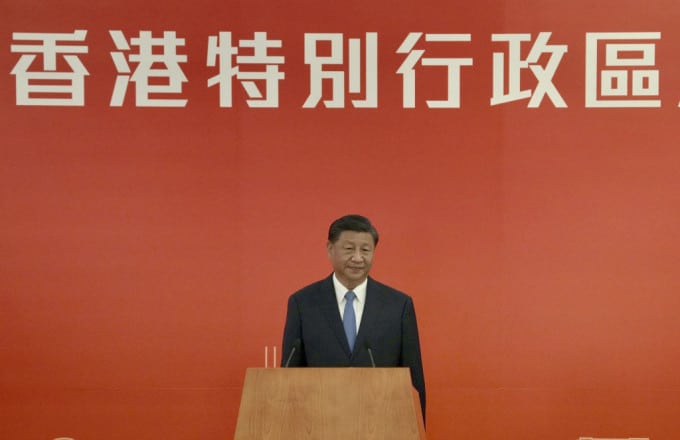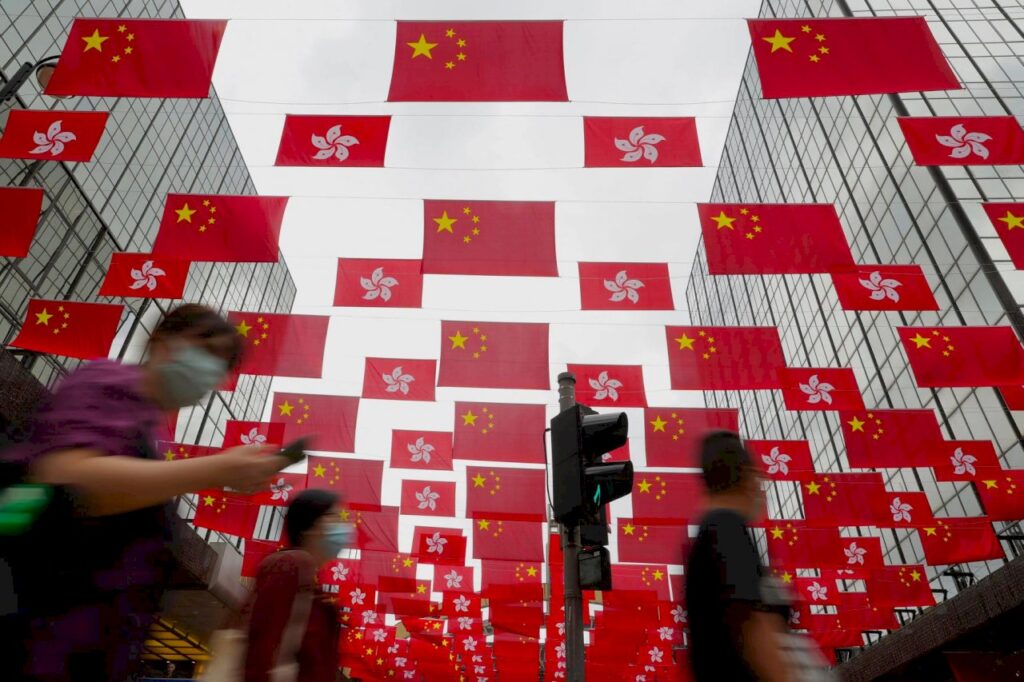President Xi Jinping inspected Hong Kong and delivered a speech that became a study book for officials and all walks of life. All previous July 1st speeches, including Xi Jinping's five years ago, have described Hong Kong's return as a great achievement or a great achievement that "will shine in the history of the Chinese nation". This year's change to the "Century of Struggle" led by the Communist Party of China is the first time that the history of Hong Kong is described from the party's perspective. Naturally, it is related to the inclusion of "one country, two systems" in the third "Historical Resolution" of the Communist Party of China at the end of last year. Leaders' speeches are authoritative materials for interpreting the central government's policies. It is worth comparing Xi's two speeches to consider their implications for the "one country, two systems" policy.
Maintaining sovereignty as the highest principle
Whether it is national history or party history, both perspectives also talk about Hong Kong's contribution to reform and opening up and the difficulties it has successfully overcome since its return to the motherland. This year, more Hong Kong compatriots have taken charge of their own country, making safeguarding national security and implementing the patriot principle one of the practical achievements of "one country, two systems." This historical logic of tracing the origins and using results as evidence is in line with the historical materialism believed in by Marxism. Therefore, Xi Jinping stated that "after repeated tests in practice," he affirmed that "one country, two systems" must be adhered to for a long time and embody the ideological line of seeking truth from facts. He particularly emphasized that he had pointed out two points of persistence in his last speech, which reflected that the country has always implemented the "one country, two systems" policy and did not just make up its mind in recent years.
The "Four Musts" bring out the central government's views on the implementation of "One Country, Two Systems" and echo the "Four Alwayss" of 2017. That year, the first "consistently" emphasized that "one country" is the foundation of "two systems" and specifically proposed three bottom lines that should not be touched. This year's first "must" once again focuses on the bottom line of "one country", and for the first time upholds "maintaining national sovereignty, security, and development interests" as the "highest principle" of "one country, two systems". This principle has been consistent with "maintaining the long-term prosperity and stability of Hong Kong and Macao" ” are listed as the “fundamental purpose”, “core requirements” and “basic objectives” of “one country, two systems”. Prosperity and stability are guaranteed by the capitalist system. Under the concept of "two systems" derived from "one country", the priority of the two will become increasingly clear.
Clarify Hong Kong’s strategic value
The second "must" and "always" have shifted from talking about the relationship between the Constitution and the Basic Law five years ago to focusing on the central government's overall governance and the SAR's high degree of autonomy. The former is law and the latter is power, two sides of the same coin. The wording has changed from "organic integration" at the 19th National Congress to "unified connection" at this year's July 1st. This is not a new formulation, but it summarizes the constitutional order governing Hong Kong.
The other two "always" focused on economic and social harmony. Five years later, part of the content was included in the "Four Points of Hope" to convey the policies of the new government. Instead, there are two new "musts", first explaining the need for patriots to govern Hong Kong, and then explaining Hong Kong's unique status and advantages. Things that must be maintained in the long term include the status of an international financial, shipping, trade center, business environment, common law system and international connections. For the first time, Hong Kong's strategic value to the central government has been clearly stated and the correct law of "one country, two systems" has been incorporated.
Hong Kong's return has been recorded in the history of the Chinese Communist Party's century-old struggle. "One country, two systems" has been long-termly adhered to by the country, clarifying many Hong Kong people's concerns about "2047" and solving the so-called "second future problem." The central government views one country, two systems from a national perspective, which is a great idea to promote the reunification of the motherland and help realize the great rejuvenation of the Chinese nation. It is also the second centenary goal of the founding of the party. We should neither be arrogant nor belittle ourselves. The cause of "one country, two systems" is in line with the interests of the country, the nation and the SAR. Not only the people of Hong Kong hope to continue it, but the central government also has great expectations for it.
Ray Poon
Co-Convenor (Research), Path of Democracy



